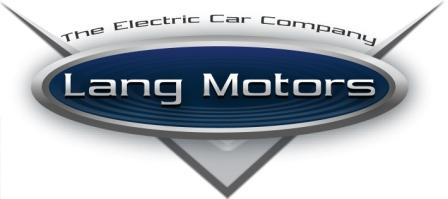
Neighborhood Electric Vehicles (NEV) are good for running errands or commuting to work. For short city/urban travel, NEVs make perfect sense. Replacing the 2nd or 3rd vehicle in household with a Neighborhood Electric Vehicle (NEV) is an appealing option. (picture of a GEM NEV e2 model)
Since 2006 Lang Motors the electric car company is on the right track with its continued focus with Neighborhood Electric Vehicle (NEV) , and city/urban transportation.
A new report from Trend Tracker, an automotive research company, indicates that higway-speed electric cars are unlikely to be able to raise their game to bail out the world's need for mobility as world oil supplies continue to decrease. The Detroit News reports that the planned production of highway-speed electric cars indicates they will still be a peripheral choice by 2050, with the global market rising to about two billion, with only about 30 million highway-speed electric vehicles. "Highway-speed EV (HSEV) production would need to increase by an average two million units a year over 23 years to effectively electrify the global car market by 2050 when the 'peak oil' scenario may have played out. In the medium term, HSEVs will continue to suffer adverse comparison in terms of price and utility with conventional cars and plug-in hybrids. Suppliers will need to develop more enticing value propositions," the Trend Tracker report said. The highway-speed electric car falls short of being ready for prime time on many fronts. Range needs to be improved by at least 100 percent. Battery prices need to be shaved at least in half. The problem of depreciation will undermine the value of the first electric vehicles. For more on the challenges facing electric vehicles in the coming years: http://www.detnews.com/article/20110223/OPINION03/102230301/1148/auto01/Battery-electric-cars-will-struggle-after-normal-buyers-replace-early-adopters
From the article: It is not too late for car manufacturers to change course and go for a much simpler, cheaper and less ambitious solution. Why not produce a little vehicle that doesn't attempt to emulate the car with its speed, range and comfort? Why not make something utilitarian which would go about 50 km/h down to the shops or around campus, where limited range would make no difference, and which many families could afford. Why not apply the new electric technology to the golf cart? This would be an affordable, unpretentious little utilitarian second car which didn't attempt to reinvent the wheel. Unfortunately, this is unlikely to happen any time soon. "The technology would be very suited for a golf cart," said Roland Berger's Blanchet, "but the car manufacturers are not in that market today. They are selling volume and they will hope that short range mobility will be more than a niche market. They aren't going to make a car that isn't a car."






No comments:
Post a Comment